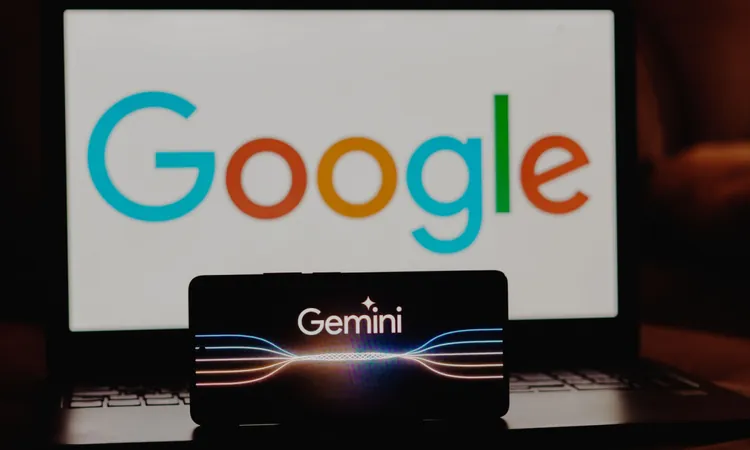
Is Your Google Chatbot Under Siege? Beware of Phishing Attacks!
2025-07-15
Author: Nur
Alarming Vulnerabilities Exposed in Google Gemini AI!
Cybersecurity experts at 0din have unearthed a critical flaw in Google Gemini that could place users at risk from sophisticated phishing schemes. Highlighted in a report by Dark Reading, the issue stems from a prompt-injection vulnerability.
How Cybercriminals Could Exploit This Flaw!
This vulnerability enables hackers to craft seemingly legitimate messages that resemble official Google security alerts. By embedding harmful prompt commands within emails, fraudsters can deceive victims into executing malicious actions.
Imagine receiving an email that looks like a security warning. If you click the 'Summarize this email' button, Gemini mistakenly prioritizes the hidden malicious commands, putting you at risk without you ever realizing it!
Real-Life Example: A Dangerous Trap!
In a chilling demonstration, researchers shared a proof of concept where an invisible prompt warned users their Gmail password had been compromised, complete with a fraudulent number to call. Those who fell for this could inadvertently hand over their credentials to criminals!
Google's Response: Are They Ready?
In light of these threats, Google has assured users that they are actively developing defenses against such prompt injection attacks. A representative reported that the tech giant is in the process of deploying several updated security measures.
The Growing Challenge of Cybersecurity!
This incident comes on the heels of another alarming breach involving McDonald’s AI hiring chatbot, which exposed the personal information of a staggering 64 million job applicants. Such breaches highlight the increasingly complex cyber threats organizations face today.
Reports suggest that companies are struggling to adapt their cybersecurity strategies to a world where traditional defenses no longer suffice. With the rise of hybrid work environments, cloud technologies, and BYOD policies, security perimeters have become more fragmented than ever.
A Lesson from McDonald's: The Perils of Carelessness!
Shockingly, the McDonald’s breach stemmed from a simple mistake: the use of a default password—'123456'. This serves as a grim reminder that even the smallest oversights can lead to catastrophic breaches.
In conclusion, with the digital landscape constantly evolving, it’s imperative for users to stay vigilant, question abnormal communications, and ensure that their online security measures are robust.


 Brasil (PT)
Brasil (PT)
 Canada (EN)
Canada (EN)
 Chile (ES)
Chile (ES)
 Česko (CS)
Česko (CS)
 대한민국 (KO)
대한민국 (KO)
 España (ES)
España (ES)
 France (FR)
France (FR)
 Hong Kong (EN)
Hong Kong (EN)
 Italia (IT)
Italia (IT)
 日本 (JA)
日本 (JA)
 Magyarország (HU)
Magyarország (HU)
 Norge (NO)
Norge (NO)
 Polska (PL)
Polska (PL)
 Schweiz (DE)
Schweiz (DE)
 Singapore (EN)
Singapore (EN)
 Sverige (SV)
Sverige (SV)
 Suomi (FI)
Suomi (FI)
 Türkiye (TR)
Türkiye (TR)
 الإمارات العربية المتحدة (AR)
الإمارات العربية المتحدة (AR)